Neil McGough
The musical path followed by Neil McGough is unimaginable now. He played trombone and harmonica in brass bands, dance bands, jazz bands, radio and television bands. He arranged and conducted for musicals, ballet, light classics, and symphony orchestras. He wielded the baton when Auckland’s leading musicians experimented fusing classical with rock. He ran two busy institutions, both now unrecognisable from their heyday: the Musician’s Union, and the Auckland Musicians’ Club. And he was a key member of the QEII Arts Council.
Among many memorable musical moments, McGough jammed with the Louis Armstrong band, Kenny Ball and Acker Bilk; played a small role in the early careers of Kiri Te Kanawa and Alan Broadbent; directed one of John Rowles’s best concert bands; backed Robin Gibb of the Bee Gees as he was bombarded by tomatoes; conducted the Auckland Symphonia when it backed Headband, Ray Columbus, Suzanne and Bunny Walters; and he came out of retirement to play harmonica in a TV special hosted by Patsy Riggir.
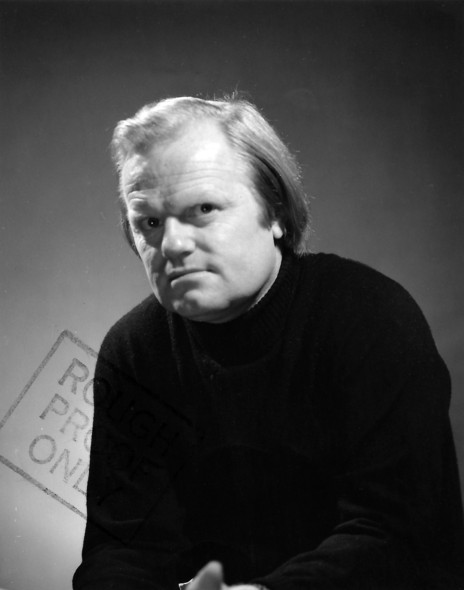
Neil McGough
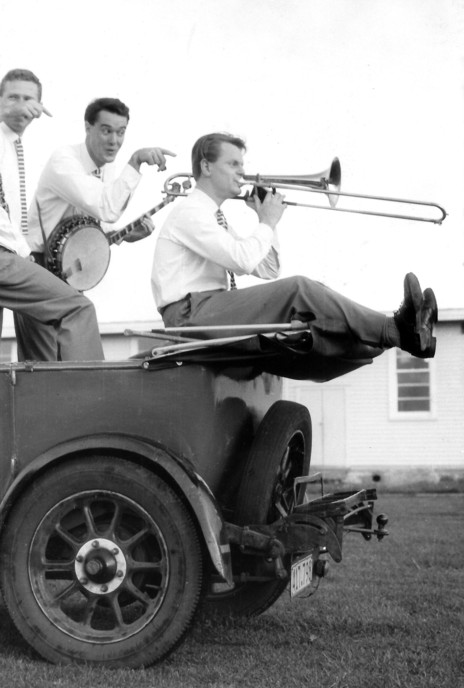
It's trad, dad: Neil McGough tailgating on trombone, mid-1960s
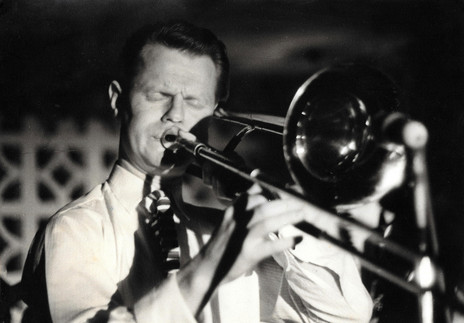
Neil McGough with the Bridge City Jazzmen at the Bali Ha'i, Auckland
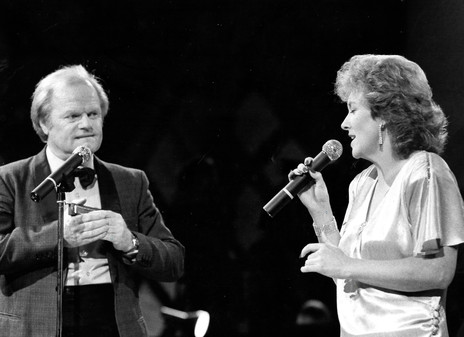
Neil McGough adds some harmonica to ‘Stardust’ as a guest on Patsy Riggir's Christmas TV special, 1985
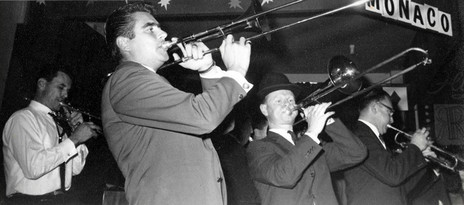
Jamming at the Monaco Club, Auckland, 1962. From left: Merv Thomas, John Bennett of the Kenny Ball Band, Neil McGough and Don Bruce.
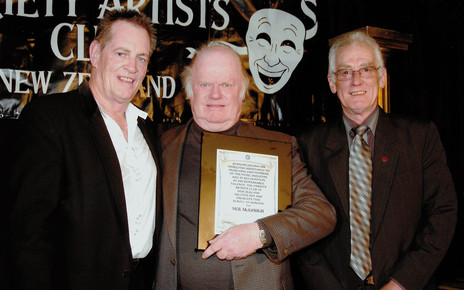
Neil McGough receives a Variety Artists Club scroll of honour in 2005, with club president Tom Sharplin at left, and broadcaster Jim Sutton.
Photo credit:
Neil McGough collection
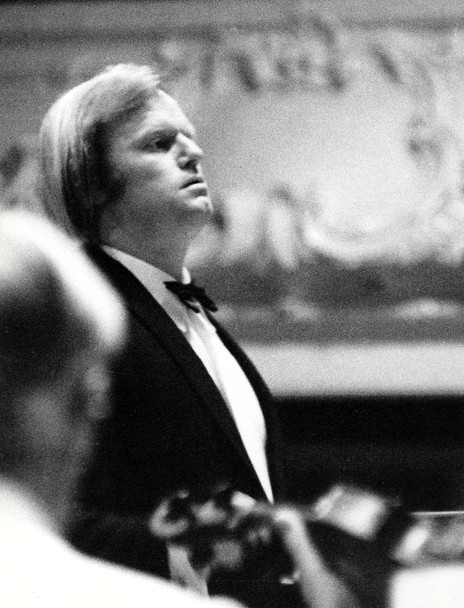
Neil McGough at Auckland Town Hall
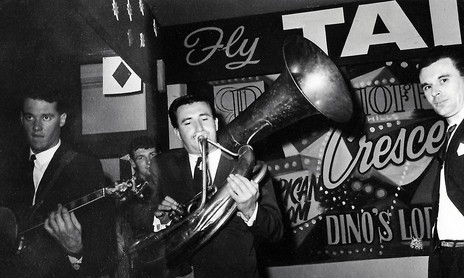
English jazz trumpeter Kenny Ball tries out a tuba while jamming after hours at the Monaco club, Auckland, 1962. At right, Auckland musician Merv Thomas wonders if he'll get his tuba back.
Photo credit:
Neil McGough collection
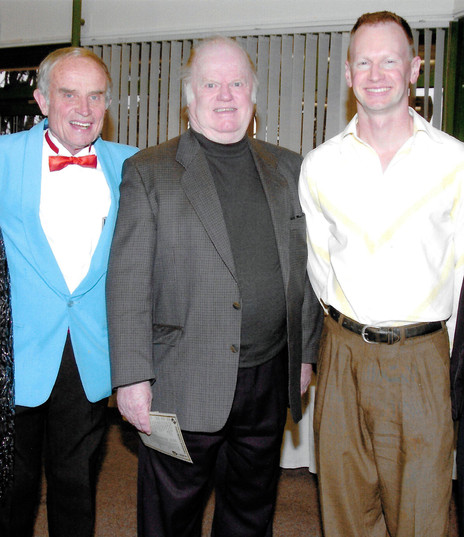
Neil McGough receives his Variety Artists Club scroll of honour in 2005, with magician Jon Zealando, left, and his son Steve McGough at right.
Photo credit:
Neil McGough collection
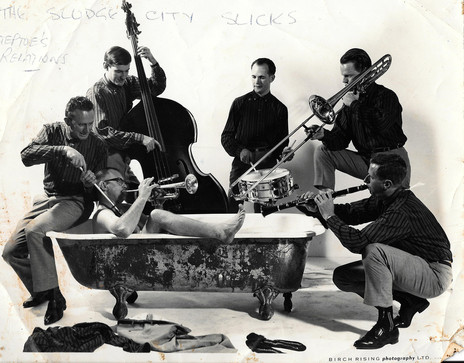
Neil McGough on trombone with the Bridge City Jazzmen, mid 1960s
Photo credit:
Neil McGough collection
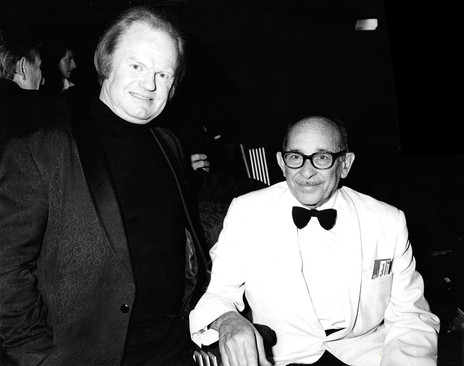
Neil McGough with his mentor, conductor Juan Matteucci, at the Mercury Theatre, Auckland, during its 1986 season of West Side Story. Matteucci had been the musical director at the Mercury
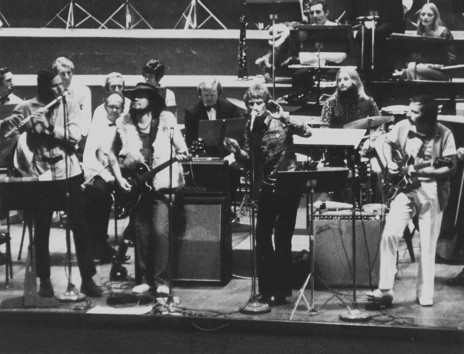
Neil McGough, in his tuxedo, sits between Billy Kristian and Tommy Adderley the night Headband met the Auckland Symphonia, April 1972
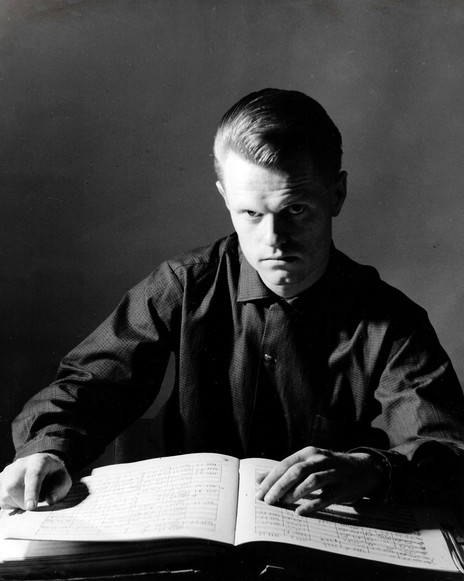
Neil McGough with the score of the New Zealand production Uwane, 1962. The “Maori musical” was written by a brother and sister, Lindsay and Zella Rowell, and featured a young Kiri Te Kanawa.
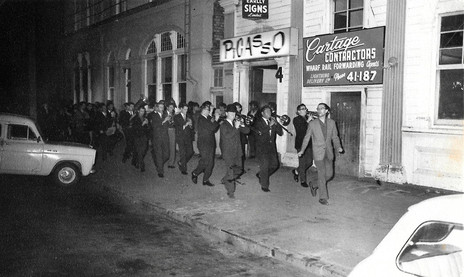
Led by “drum major”, bassist Les Still, the Auckland Jazz Club band escorts the Kenny Ball Band past the Picasso on Grey's Avenue, Auckland, to the Monaco on Federal Street, 1962.
Photo credit:
Neil McGough Collection
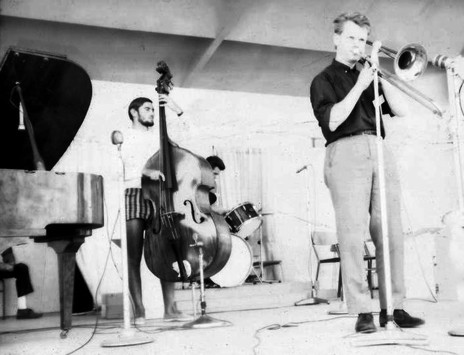
Neil McGough, trombone, with bassist Nick Wilcox and the Bridge City Jazzmen
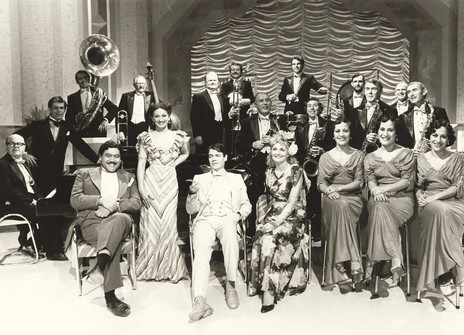
Billy T James and the core cast and orchestra of TV's Radio Times, early 1980s. Craig Scott is seated in front.
Radio Times (1980) - Neil McGough features on trombone from 5'05"
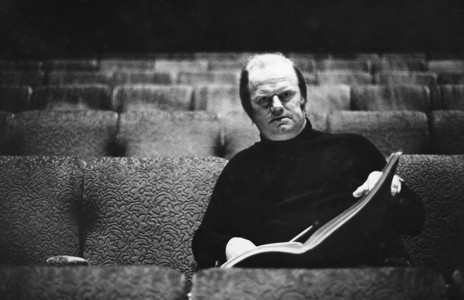
Neil McGough with his score for West Side Story, which he conducted at the Mercury Theatre, Auckland, in 1986